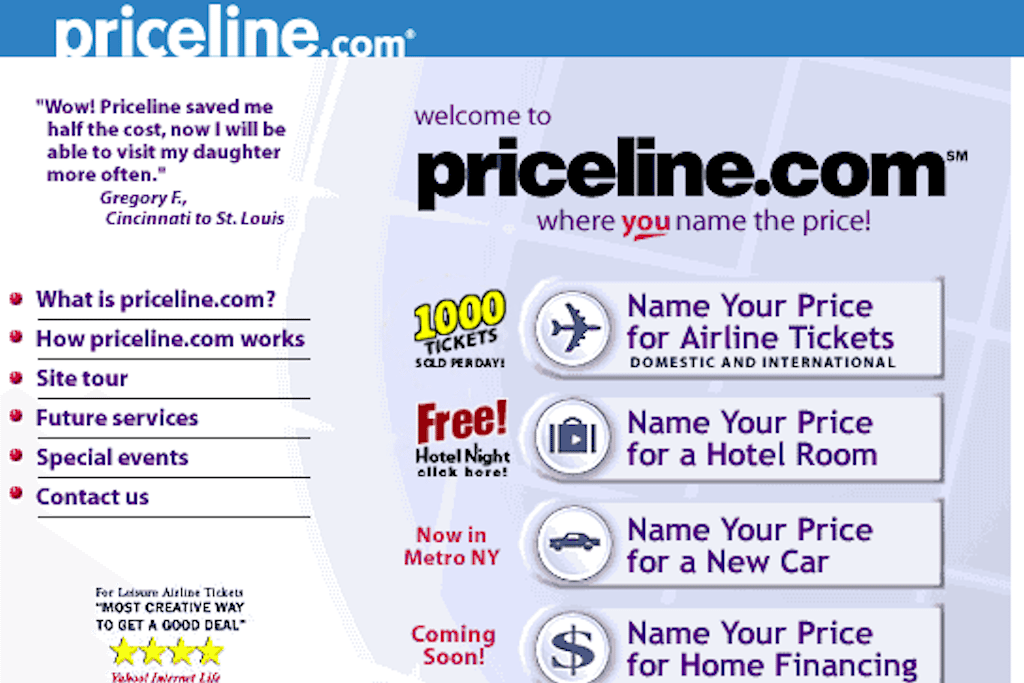Priceline Kills Name Your Own Price for Flights

Skift Take
Priceline.com just killed its original product, Name Your Own Price for flights, and if you were a fan, you can blame that phone in your pocket for its demise.
In response to our inquiry, Priceline.com spokesperson Flavie Lemarchand-Wood said the service, which enabled travelers to submit a desired price for a flight, was discontinued September 1. Users would find out the name of the airline and the schedule only after a carrier accepted the bid.
Twitter user @AnthonyQuintano had tipped us off to the service's demise.
According to @Priceline customer service rep, they are no longer offering the "Name Your Own Price" for airline tix pic.twitter.com/pQsg6Cdt0Z
— Anthony Quintano (@AnthonyQuintano) September 2, 2016
Although Name Your Own Price for flights is now history, Priceline is still honoring flights that were already booked through the service. Priceline.com's Name Your Own Price for hotels, with discounts up to 60 percent, and car rentals, with discounts up to 40 percent off published prices, are still available.
There has been "a dramatic evolution in both technology and consumer behavior when it comes to booking travel," Lemarchand-Wood said. "As we announced earlier this year, the company’s new strategy will help customers connect with deals faster and more easily than before."
However, the company did not announce at that time that Name Your Own Price for flights would be eliminated. That news came September 1 in response to our inquiry.
"Priceline.com -- through Express Deals for flights – continues to provide the ultimate travel solution by offering deep discounts without bidding to make the booking experience easier to use, mobile-friendly, with no extra steps," the spokesperson said. "Name Your Own Price for flights will no longer be offered. Express Deals for flights, available across all platforms, provides savings up to 50 percent off published rates and reveals the exact itinerary and airline carrier immediately after purchase."
Priceline.com downplayed its Name Your Own Price service several years ago in favor of the easier-to book -- especially on mobile -- Express Deals and the company even figuratively killed off actor and spokesman William Shatner in the process before bringing him back in various ways.
Jay Walker founded Priceline.com in 1997 and its maiden product was Name Your Own Price for flights.
As outlined in Skift's Definitive Oral History of Online Travel, U.S. airlines initially resisted participating in Walker's scheme to have them sell what would otherwise have been empty seats in an opaque manner at a steep discount.
Priceline.com initially purchased airline tickets at retail prices and sold them to consumers using the Name Your Own Price service at a loss until Delta realized how many tickets Priceline could sell and began participating in the service in exchange for warrants to buy Priceline stock.
Now Priceline.com's flight-bidding service is merely a relic, banished by consumers seeking sleek booking solutions on small-screen smartphones.





